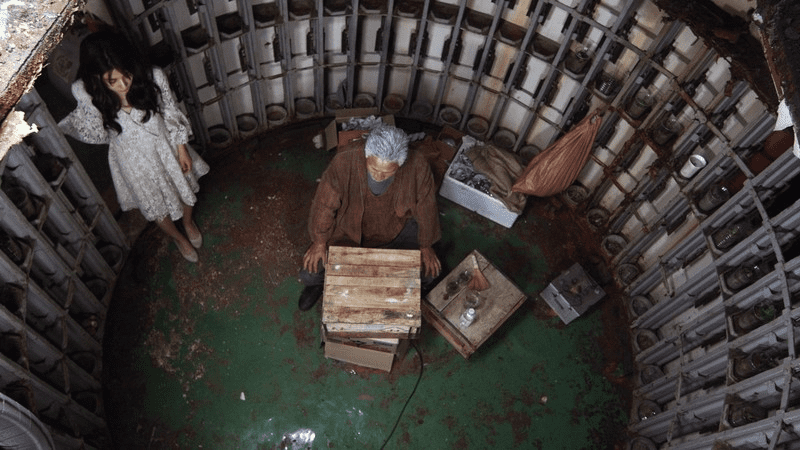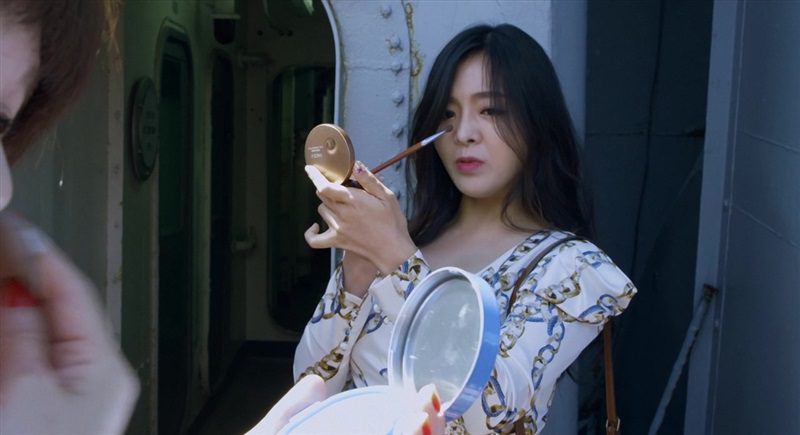Human, Space, Time and Human (original title: Ingan, Gonggan, Sigan geurigo Ingan) is a controversial film masterpiece by director Kim Ki-duk, which premiered at the Berlin Film Festival in 2018. With its intense content and striking visuals, the film has left many viewers stunned and unable to speak for some time. During its debut screening at the Berlin Film Festival, Human, Space, Time and Human caused a stir among the audience, leading to a significant number of attendees leaving the screening early. The 18+ film has a runtime of 122 minutes, yet it feels like there isn’t a single moment for viewers to relax, as the overwhelming violence, nihilism, and despair pervade the narrative.

Intense Content and A 30-Minute Long Disturbing Scene
Human, Space, Time and Human revolves around a group of people on a mysterious cruise ship, including a father-son duo, a group of young girls, and several other characters. All of them are aboard a ship embarking on an unclear journey to an unspecified destination. The captain (Sung Ki-youn) starts the voyage with a message about safety, but soon after departure, chaos engulfs the ship and transforms the journey into a nightmare.


As the ship drifts into the void of space, the passengers’ primal instincts emerge, revealing the true nature of humanity under extreme conditions. The film showcases brutal actions, highlighting the descent into madness, fueled by desperation, power struggles, and survival instincts. The film is replete with violent scenes and disturbing moments, creating a sense of dread and unease for viewers. Notably, one of the most shocking sequences spans nearly 30 minutes, wherein the main character Eve (played by Mina Fujii) is attacked by a group of men, while her male companion is helpless against the brutality. This segment has sparked significant controversy, with many critics claiming it crosses the line of acceptable representation in film.

Artistic Merit or Controversy?
Human, Space, Time and Human has received polarized reviews from critics. Some, like Rodrigo Fonseca from the Brazilian media outlet, praised the film for its unique storytelling and deep philosophical implications regarding the human condition in extreme environments. They argue that while the film is violent and disturbing, it serves as a mirror reflecting humanity’s degradation when faced with dire circumstances.
Conversely, many international critics, including Jessica Kiang from Variety and Oliver Johnston from The Upcoming, have harshly criticized the film. They believe it to be a work that glorifies violence without providing substantial narrative depth. The director’s approach, while attempting to weave complex philosophical themes into a very dark narrative, often leads to actions that feel gratuitous and nonsensical, rendering the film excessively harsh.

Even the actors involved have expressed discomfort with the film’s script. Lead actor Lee Sung-jae noted that during filming, he felt that this was an exceptionally violent production that required them to delve into dark and heavy themes. He shared concerns about whether the public would accept this film’s portrayal of human suffering and its graphic content. Many actors have also voiced their worries about the film’s potential to evoke backlash from international audiences.
Human, Space, Time and Human is a provocative film that highlights the uncompromising style of director Kim Ki-duk, known for challenging the boundaries of cinematic storytelling. Despite some praising its artistic merit and philosophical depth, many viewers and professionals believe it crosses ethical lines in its depiction of graphic violence, raising questions about the intersection of art and societal norms.

Image Source: Compilation





















